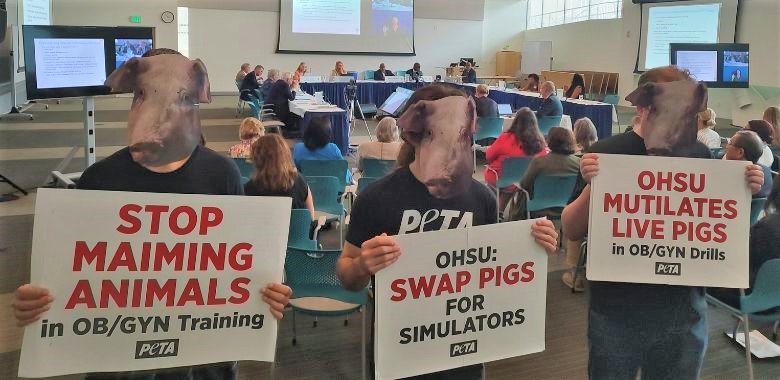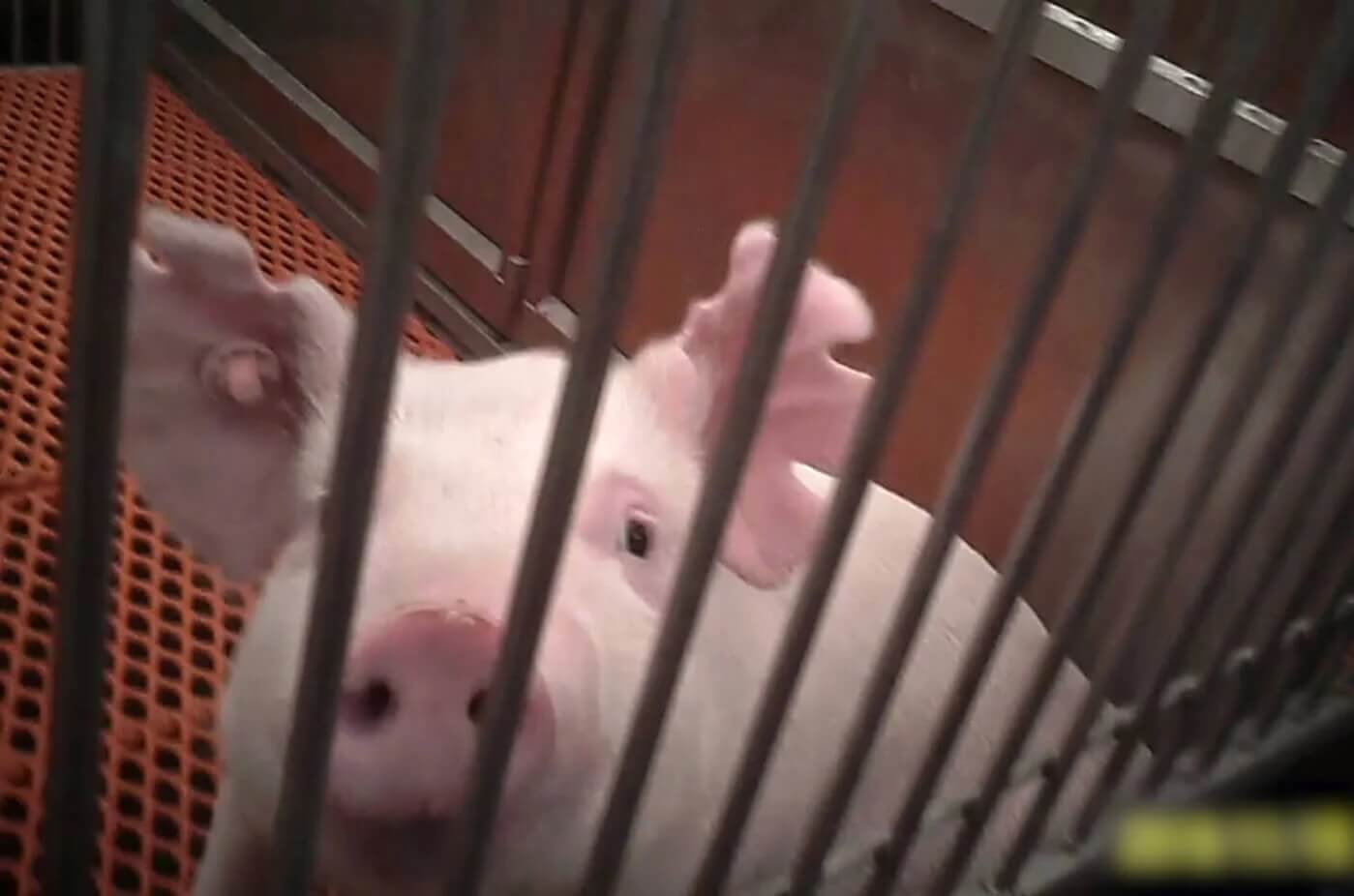OHSU Kills Pigs, Fails Women; PETA Offers a Better Strategy for OB/GYN Training
Pigs and human women are nothing more than two sides of the same coin, according to Oregon Health & Science University (OHSU), where doctors-in-training maim live pigs by using them as stand-ins for humans in their obstetrics and gynecology (OB/GYN) physician residency training program.
OHSU trainees cut into live female pigs, dissect their organs, and perform other invasive surgeries on them in attempts to learn human medicine. Any surviving pigs are killed.
PETA recently called out the university for this foolish practice of teaching doctors-to-be that pigs are women. The school responded, doubling down on its delusion: “We look forward to a time when nonanimal surgical training methods are capable of faithfully modeling the complexity of a living system. However, technology currently does not exist to recreate some of the most complex procedures surgeons must regularly perform in humans.”
Tell that to Aurora Sinai Medical Center, Rush University Medical Center, and the University of Texas Southwestern Medical Center, which have ended their use of live pigs for OB/GYN physician residency training after hearing from PETA in favor of animal-free simulation technologies.

Since OHSU is operating in a fantasyland where pigs are the closest model of human women, PETA kindly compiled this convenient list of animal-free methods for them that are used by modern physicians here in reality. These are some superior methods OHSU could use to help women, instead of killing sensitive animals.
- Human-patient simulators: These lifelike human models with anatomically correct reproductive organs have been shown to be “cheaper than practicing on laboratory animals.” They also increase trainee confidence and are able to be reused dozens of times. Simulators include features such as IV arms for fluid administration, fetal heart sounds, and a birthing baby with placenta.
- The Noelle simulator provides a “complete birthing experience before, during, and after delivery.”
- BirthSIM simulators are lifelike dummies with major anatomical markers for both the fetus and mother.
- Computer-assisted learning software: When combined with simulators, advanced computer models can be used to replicate various vaginal delivery scenarios, heavy bleeding after birth, fetal blood sampling, eclampsia, and more.
- For example, BirthSIM simulators are equipped with measuring sensors and technology that regulates the air pressure to effectively model the birthing process. An attached computer also offers real-time visualization of the fetus and pelvis.
- Virtual reality programs: When combined with simulators, virtual reality programs can enhance trainee confidence, competency, and stress management in medical emergencies. Simulators can use VR to display ultrasound pictures obtained from real patients and three-dimensional animation of a probe’s position within the simulator’s body.
- Creative and accessible solutions: Low-cost models such as the Ziploc task trainer are able to be reused dozens of times. They allow trainees to visualize techniques and effectively replicate the sensation of piercing through tissue.
Familiarity with complex human anatomy can literally be the difference between life and death in medicine. Since pigs and other animals cannot accurately mimic this complexity, dozens of OB/GYN residency training programs and even the U.S. Department of Defense have ditched the use of live animals in favor of effective, non-animal methods.
What You Can Do
Please take action today to urge OHSU to get with the times by ending the use of live animals for OB/GYN residency training.


